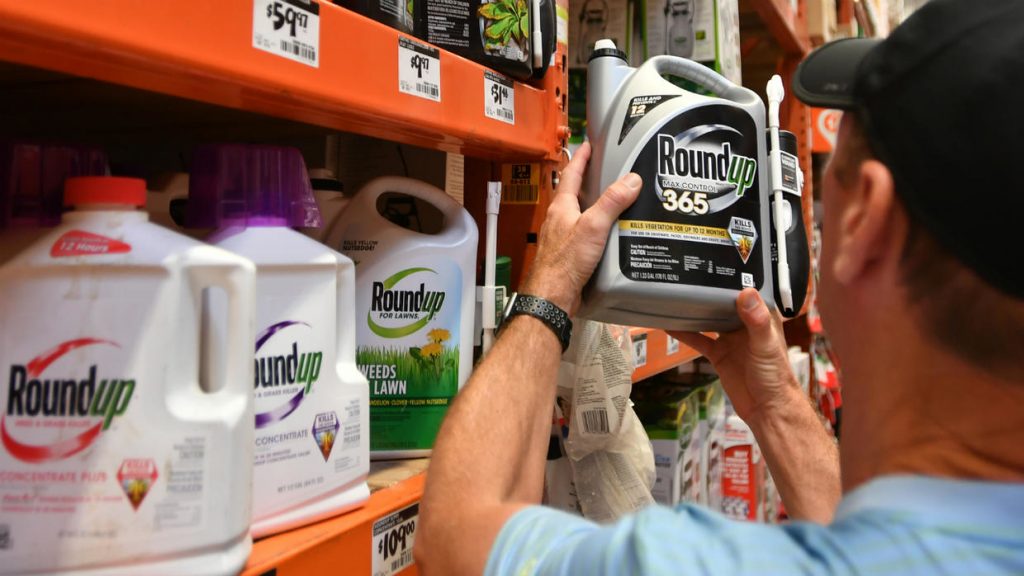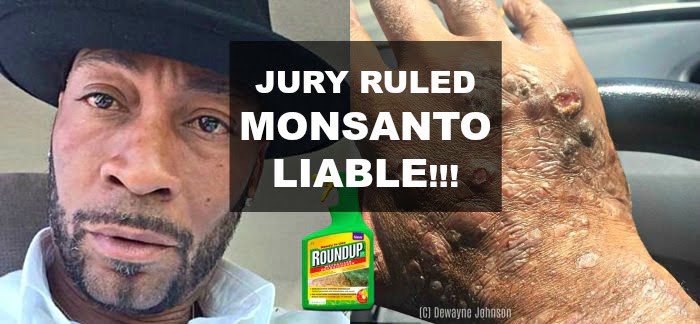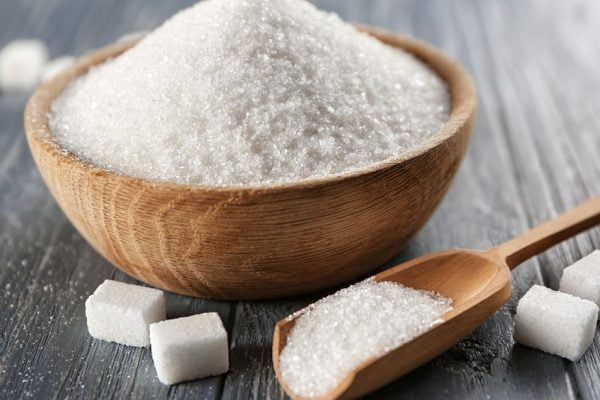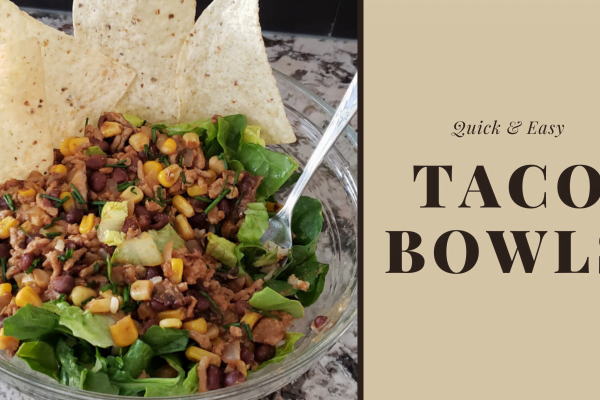You may have heard about Monsanto or pesticides before, but do you know just what this company has done? Many of the most common pesticides used in agriculture today are glyphosate-based, and the most common pesticide used is Monsanto’s Roundup. Okay, so what?
As of 2017, glyphosate has been classified as a known carcinogen by California’s Office of Environmental Health Assessment. In fact, three separate lawsuits were filed and successful against Monsanto claiming that its flagship herbicide Roundup caused cancer. The lawsuits proved that Monsanto KNEW about the carcinogenic effects of glyphosate and Roundup for DECADES and tried very hard to cover up the facts.
Roundup has been making this company billions of dollars, so why would they announce that it’s carcinogenic? Money over ethics, I guess.
But this isn’t the first time Monsanto has come under fire for controversial products.
Monsanto started producing polychlorinated biphenyls (PCBs) in the 1920s in the United States. PCBs were used as coolants in generators and even in electrical transformers. However, after much speculation and testing, the government finally banned PCBs in 1979 due to its carcinogenic effects.
The alarming part of this story is that Monsanto knew that PCBs were carcinogenic. In 2002, tons of internal documents were leaked, showing that Monsanto knew the risks but continued to produce and sell their product anyway. The document can be seen here.
After World War II, Monsanto decided to focus on the agricultural sector and began creating pesticides. The production and distribution of Dichlorodiphenyltrichloroethane (DDT) began in 1944. It was used as an insecticide. However, it was banned less than 30 years later because of, you guessed it, its potent carcinogenic effects and extreme toxicity. There have been numerous reports proving that PCBs cause various forms of cancer, like melanomas, liver cancer, GI tract cancer, brain cancer and more.

After this, Monsanto created Agent Orange, known for its use in the Vietnam War as a defoliant. It would cause trees and plants to lose their leaves so they couldn’t provide shelter or hiding for soldiers. However, Agent Orange caused extreme toxicity to those who were exposed to it. About 3 million people (American soldiers, Vietnamese soldiers and Vietnamese citizens) were contaminated and there are about half a million recorded cases of birth defects in Vietnamese children caused by Agent Orange.
It’s becoming painstakingly obvious that Monsanto has a long history of creating harmful, carcinogenic chemicals for profit.
The most recent Monsanto product that is still on the shelves today is Roundup, which is a glyphosate-based herbicide. Roundup was created in the 1980s to be used on Monsanto genetically modified seeds.

Now, GMO doesn’t necessarily mean ‘bad.’ But it’s what is done to these seeds afterwards that makes these GMO crops bad. GMO seeds are bred to be “immune” to glyphosate. However, glyphosate on its own is a very potent herbicide which will kill just about any plant it comes into contact with.
In the earlier days of farming, farmers would sow seed far apart to be able to till the ground in between plants to kill weeds. Enter, Monsanto. With Roundup and glyphosate resistant seed, farmers could now plant their seeds closer and simply spray the crops with glyphosate to kill weeds. This maximizes yield and profit for the farmer. Sounds like a great solution for the world’s growing population!
Wrong.
Glyphosate residue is found in all the crops that it is used on, which is mostly corn and soybeans. According to the USDA, corn farmers in America planted 91.7 million acres of corn in 2019. On average, about 85% of this corn is sprayed with Roundup. The USDA says that about 1/3 of this corn is used as animal feed and 1/3 is used for human consumption. So, unless you’re buying certified organic corn and meat, chances are, you’re ingesting glyphosate.
A recent study from the Environmental Working Group also found that glyphosate was being sprayed on oats and grains as a drying agent for faster harvest. Their research found that glyphosate residue was found in dangerous levels on most grain-based breakfast cereals and granola bars on the market. General Mills, Kellogs, Nature Valley and Quaker Oats are some of the worst brands to buy from. They buy oats and grains from farms who specifically use Roundup because crops from these farmers are generally cheaper due to their lower cost of production.
I’ve included the EWG’s chart below of the 21 food products they tested for glyphosate residue. The EWG set a benchmark for an “acceptable” level of glyphosate residue for children’s health. Some of the numbers below will blow your mind.
| Variety | Glyphosate (ppb) |
|---|---|
| Honey Nut Cheerios Medley Crunch | 833 |
| Cheerios Toasted Whole Grain Oat Cereal | 729 |
| Nature Valley Crunchy Granola Bars, Maple Brown Sugar | 566 |
| Nature Valley Cups, Almond Butter | 529 |
| Chocolate Peanut Butter Cheerios | 400 |
| Nature Valley Baked Oat Bites | 389 |
| Nature Valley Crunchy Granola Bars, Oats and Honey | 320 |
| Nature Valley Crunchy Granola Bars, Peanut Butter | 312 |
| Nature Valley Granola Cups, Peanut Butter Chocolate | 297 |
| Cheerios Oat Crunch Cinnamon | 283 |
| Nature Valley Fruit and Nut Chewy Trail Mix Bars, Dark Chocolate Cherry | 275 |
| Nature Valley Granola Protein Oats in Dark Chocolate | 261 |
| Multi Grain Cheerios | 216 |
| Nature Valley Soft Baked Oatmeal Squares, Blueberry | 206 |
| Fiber One Oatmeal Raisin Soft Baked Cookies | 204 |
| Nature Valley Granola Peanut Butter Creamy and Crunchy | 198 |
| Nature Valley Biscuits with Almond Butter | 194 |
| Nature Valley Sweet and Salty Bars, Cashew | 158 |
| Honey Nut Cheerios | 147 |
| Nature Valley Soft Baked Oatmeal Squares, Cinnamon Brown Sugar | 124 |
| Nature Valley Fruit and Nut Chewy Trail Mix Bars, Dark Chocolate and Nut | 76 |
It’s a wonder why German chemical giant Bayer would bid to buy Monsanto in 2016, but they did, and they succeeded. In 2018 Bayer became the new owner of Monsanto, which is now known as Bayer-Monsanto. Given Monsanto has come under serious fire yet again for the carcinogenic effects of glyphosate, Bayer’s worth and equity has drastically diminished.

Bayer-Monsanto is currently facing its fourth lawsuit over allegations that Roundup causes cancer. The three juries before this all found that glyphosate did cause cancer for the plaintiffs. You can keep up to date with the latest Bayer-Monsanto legal drama here.
It’s amazing to me that given Monsanto’s history, they are still able to produce and market glyphosate and Roundup. I see the herbicide bottles locked away every time I go to Lowes or Home Depot and it pains me. It makes me angry that so many people are unaware of the dangers of these chemicals and it saddens me that many farmers are stuck buying Monsanto seed for eternity. I’ll get into that in another blog, but if you’re interested, look up Monsanto patented seed. Now that will show you that this company really is the devil incarnate.
Now, I know what a lot of you are probably saying. Everything today kills you! Pesticides are everywhere! I won’t get cancer, not me! And maybe you won’t. But maybe you will. Or maybe you’ll develop another chronic disease. Is that really how you want to live out your life? Sick and miserable? I know I don’t.
Small changes can make a world of a difference. You don’t need to buy exclusively organic (although, that would be ideal), but at least look into the brands you’re buying from. Nature’s Path is a great brand for cereals and granola and their products are non-GMO organic for an excellent price.
I know for most of us organic isn’t feasible because its expensive. But I promise if you make this a priority, you WILL find affordable organic products. Remember that every time you buy something, you’re making a decision and you’re voting with your dollar. Knowing what you now know, who will you vote for?
If you liked this post, don’t forget to subscribe to my newsletter and be sure to share it to all your friends!





nice post. I just stumbled upon your post and wished to say that I’ve really enjoyed browsing your article. After all I’ll be subscribing to your rss feed and I hope you write again soon!